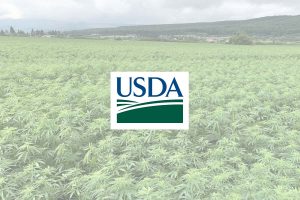
Federal agriculture regulators made good on their promise to include hemp in the latest round of sustainable-agriculture research funding, granting a total of $20 million for two multidisciplinary projects focused on the nascent crop.
The grants are part of a $146 million investment in sustainable agriculture research from the U.S. Department of Agriculture’s National Institute of Food and Agriculture (NIFA).
The grants were announced Wednesday through the Agriculture and Food Research Initiative’s Sustainable Agricultural Systems (SAS) program.
Defining hemp opportunities
Oregon State University’s Global Hemp Innovation Center received a $10 million grant to define economic opportunities for hemp in the Western U.S.
Through the five-year project, OSU scientists will partner with eight institutions across the U.S. on the research, which addresses the needs of Native American and other rural community businesses and farmers in a four-state Western Pacific region.
The project will investigate:
- Where hemp grain, fiber and essential-oil market classes should be optimally grown and the best genetics to use.
- How to incorporate hemp into existing production systems to complement rather than disrupt markets.
- Where to process hemp materials for manufacturing hemp products.
- Growth markets to support industry expansion.
The research team plans to target the transportation corridor extending through Washington state, Oregon, Nevada and California, east of the Cascade-Sierra Nevada Mountains from Canada to Mexico.
The region represents diverse and generally arid environmental conditions that include both irrigated and nonirrigated agricultural production.
With Native American tribes represented across the region, the researchers will partner with Native American farmers and tribal leaders, including the Confederated Tribes of Warm Springs in Oregon, to include their cultural and economic needs in business-development efforts.
Engagement of the tribal and other rural communities is critical to the success of the project and will present potential for potential economic opportunities in hemp for the region, according to Jeffrey Steiner, associate director of OSU’s Global Hemp Innovation Center.
“Our project has set out to ensure those opportunities are equally available and relevant to all kinds of farmers,” Steiner said in a statement from the university.
The project partners include the University of California, Davis; Washington State University; University of Nevada, Reno Extension; the USDA’s Agricultural Research Service; the U.S. Department of Transportation; Volpe National Transportation Systems Research Center; the Federally-Recognized Tribes Extension Program; 7 Generations, a Native American-owned firm that specializes in business development; the USDA’s National Agricultural Library; the USDA’s Western Rural Development Center; and researchers from OSU’s colleges of business, engineering and pharmacy and the Extension Service.
Hemp for feeding seafood
Central State University, a Black-administered institution based in Wilberforce, Ohio, received $10 million to research the viability of using hemp as an aquaculture or fish-farming feed ingredient to address food-safety concerns about consuming seafood raised with feed additives.
Through the five-year project, Sustainable Use of a Safe Hemp Ingredient (SUSHI), Central State will partner with researchers from the College of Menominee Nation, Kentucky State University, University of Delaware, University of Kentucky and Mississippi State University to investigate how to increase economic markets and production sustainability for seafood and hemp.
Additionally, the project will serve to increase diversity in aquaculture by training Black and Native American graduates in agriculture. It also will develop economically and environmentally sustainable hemp and aquaculture systems, increasing the production of healthy fish in the Menominee Nation, according to CSU research assistant professor Brandy Phipps, who will lead the project.
More research
According to the USDA-NIFA, the SAS program focuses on research projects aimed at improving plant and animal production and sustainability as well as human and environmental health to develop a robust, resilient, climate-smart food and agricultural system.
Fifteen projects were funded within the third installment of NIFA grants in the program, available to eligible colleges, universities and research programs and two specifically focused on hemp research.
“Investments in research projects likes these … will result in long-term improvements in agricultural practices that will benefit consumers, farmers and the environment,” NIFA Director Carrie Castille said in a news release.
“It takes an inclusive systems approach to tackle these major issues. We are excited to see impacts this research investment will generate for our nation to move us towards solutions that benefit all Americans.”
Other projects not directly tied to hemp but of interest to the industry include:
- Sustaining groundwater and irrigated agriculture in the Southwestern United States under a changing climate.
- Securing a climate-resilient water future for agriculture and ecosystems through innovation in measurement, management and markets.
- Sustainable agricultural intensification and enhancement through the utilization of regenerative agricultural management practices.

